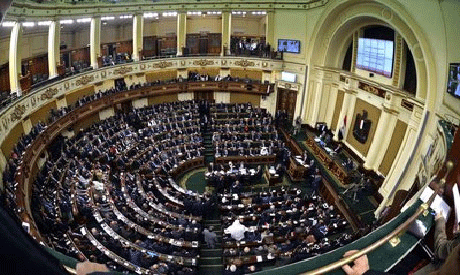
Egypt parliament (Al-Ahram)
Speaker of Egypt's House of Representatives Hanafi Gibal revealed in a plenary session on Sunday that a draft law aimed at toughening penalties on sexual harassment crimes was referred to the House's Legislative and Constitutional Affairs Committee for study.
The draft law, submitted by Ashraf Rashad, deputy chairman of the parliamentary majority party of Mostaqbal Watan (the Nation's Future), seeks to amend Egypt's Penal Code to stiffen penalties on sexual harassment crimes.
On Mostaqbal Watan's "Facebook" page, Rashad indicated that many of the Penal Code's articles related to sexual harassment are not imposing penalties tough enough to stem the tide of this crime in society.
"As a result, the party decided to amend these articles to inflict tougher penalties on sexual harassment crimes and help defend the rights of women in particular and the Egyptian family in general," said Rashad.
Tarek Radwan, another Mostaqbal Watan official and chairman of the House's Human Rights Committee, also announced Sunday that he is in the process of drafting a law aimed at banning clerics from issuing religious fatwas (edicts) without a prior license from Al-Azhar institution or the Ministry of Wakfs.
Radwan said his decision to draft the law on religious fatwas is based on a ruling that was issued by Alexandria's Administrative Justice Court last week, stating that clerics not having a prior license from Al-Azhar Islamic institution or the Ministry of Wakfs should be banned from issuing religious fatwas or preaching in mosques.
"The court's final, and historical ruling also declared that there is a legislative vacuum on the issue of regulating religious fatwas and that MPs should intervene to amend laws to ban individuals without adequate Islamic education to preach in mosques or issue religious fatwas," said Radwan.
According to Radwan, many of those who have issued religious fatwas in recent months were neither qualified nor licensed. "They have not even studied Islamic jurisprudence, not to mention that they issue politicized fatwas that sow the seeds of sedition in society and spread extremism, making use of the social media and television channels, " said Radwan.
Radwan revealed that the draft law will focus on toughening penalties, including hefty fines and prison sentences, to prevent unqualified clerics from preaching in mosques or issuing religious fatwas.
Short link: